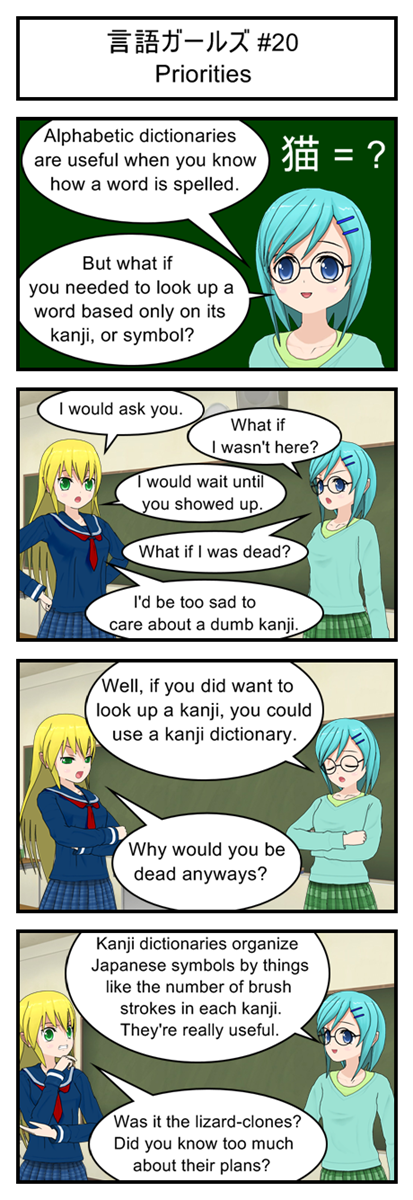
If your main goal is to speak and listen to Japanese the kanji probably aren’t a big deal. But if your goal is to read Japanese the sooner you learn how to use a kanji dictionary the better. Being able to look words up on demand is a lot easier than having to memorize 2,000 kanji before even thinking about reading your first Japanese comic or news article.
Transcript
言語ガールズ #20
Priorities
Blue: Alphabetic dictionaries are useful when you know how a word is spelled.
Blue: But what if you needed to look up a word based only on its kanji, or symbol?
Yellow: I would ask you.
Blue: What if I wasn’t here?
Yellow: I would wait until you showed up.
Blue: What if I was dead?
Yellow: I’d be too sad to care about a dumb kanji.
Blue: Well, if you did want to look up a kanji, you could use a kanji dictionary.
Yellow: Why would you be dead anyways?
Blue: Kanji dictionaries organize Japanese symbols by things like the number of brush strokes in each kanji. They’re really useful.
Yellow: Was it the lizard-clones? Did you know too much about their plans?